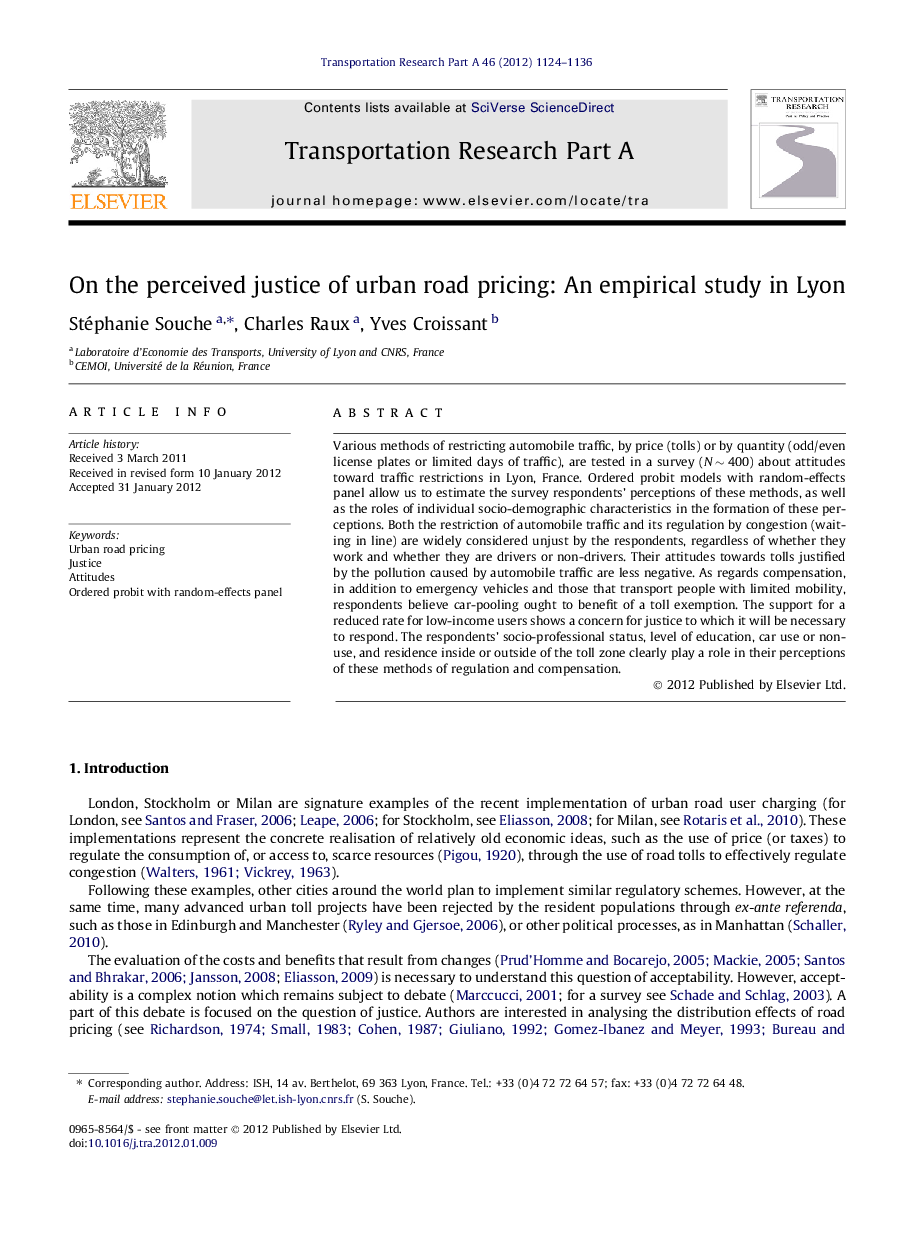| Article ID | Journal | Published Year | Pages | File Type |
|---|---|---|---|---|
| 312092 | Transportation Research Part A: Policy and Practice | 2012 | 13 Pages |
Various methods of restricting automobile traffic, by price (tolls) or by quantity (odd/even license plates or limited days of traffic), are tested in a survey (N ∼ 400) about attitudes toward traffic restrictions in Lyon, France. Ordered probit models with random-effects panel allow us to estimate the survey respondents’ perceptions of these methods, as well as the roles of individual socio-demographic characteristics in the formation of these perceptions. Both the restriction of automobile traffic and its regulation by congestion (waiting in line) are widely considered unjust by the respondents, regardless of whether they work and whether they are drivers or non-drivers. Their attitudes towards tolls justified by the pollution caused by automobile traffic are less negative. As regards compensation, in addition to emergency vehicles and those that transport people with limited mobility, respondents believe car-pooling ought to benefit of a toll exemption. The support for a reduced rate for low-income users shows a concern for justice to which it will be necessary to respond. The respondents’ socio-professional status, level of education, car use or non-use, and residence inside or outside of the toll zone clearly play a role in their perceptions of these methods of regulation and compensation.
► We model perceptions toward traffic restrictions in Lyon (France). ► We use an ordered probit models with random-effects panel. ► Car restriction are considered unjust by workers and drivers. ► The support for a reduced rate for low-income users shows a concern for justice. ► Perception are also correlated with level of education and residence location.
